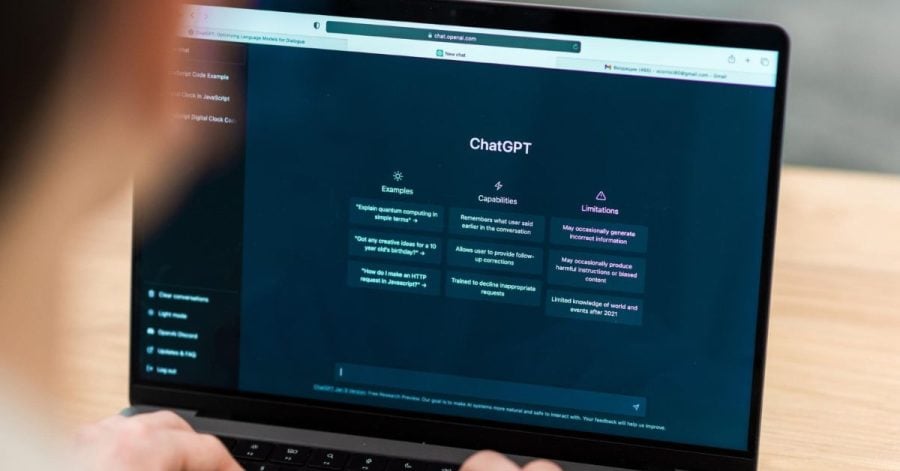Will he or won’t he be OpenAI’s CEO? While almost everybody in the tech world focused on Sam Altman’s fate in one of the fastest-growing companies in the world during the past couple of weeks, for many users of its flagship product, ChatGPT, the main news surrounding the company was elsewhere.
Tech enthusiast Ivan David Dogan is one of them. For him, it is all about how OpenAI has democratized AI development through GPTs, which became available at the beginning of this month, and are a way for anyone to create a tailored version of ChatGPT to be more helpful in their daily life or specific tasks.
Dogan, a teaching assistant at the Zagreb School of Economics and Management, himself trained and created one such model that can develop and improve business strategy and business modeling. And these are the developments around OpenAI that are most important right now, he says.
“The real news is the fact that training and development of these models does not require any technical or programming knowledge. Application development is no longer only in the hands of developers. What will perhaps mark the end of the year is the GPTstore or GPTs which, following the example of the Apple store, will become a platform for specialized models of various purposes created by the GPT community (with a perspective for monetization),” Dogan explains, adding that such developments can further fuel the creator’s economy.
“AI is democratizing creativity, allowing diverse participation across various fields, and fostering an interdisciplinary landscape with new norms and rules. For example, AI aids those with creative visions but limited technical skills, like assisting a budding novelist with language or a small business owner with market analysis. This not only empowers individuals but also heralds broader social and economic shifts yet to be fully realized,” he tells The Recursive.
According to OpenAI, the GPTs are here to stay, and they have a specific purpose – to shape how AI behaves.
“We designed GPTs so more people can build with us. Involving the community is critical to our mission of building a safe AGI that benefits humanity. It allows everyone to see a wide and varied range of useful GPTs and get a more concrete sense of what’s ahead,” the company said in a statement.
According to Goldman Sachs, the creator economy, a space that allows influencers and content creators to earn revenue from their creations, is poised to reach half-a-trillion dollars by 2027, and this is very much reshaping the traditional landscape of employment and entrepreneurship.
At the moment, ChatGPT has more than 100 million weekly active users, with many of them starting to utilize GPTs to further develop their ideas and projects and earn from them. According to Dogan, this is a trend that will only continue to develop as its technology advances.
“As AI grows more sophisticated and aligned with human creativity, its role as an enabler will expand, potentially sparking novel art forms, business models, and unforeseen innovations. This progress might also lead to a complex and unpredictable market landscape,” he says.
For Sofia-based UX/UI designer and creator Daniel Dungyov, the practical experience with custom GPTs and the tool that he made for design application Figma has also shown an easiness and output quality that hasn’t been seen before.
“This accessibility of advanced technology democratizes creative and technical capabilities, previously limited to those with extensive teams. The rise of solopreneurs, leveraging AI copilots to tackle diverse use cases, is a trend I foresee gaining or that will gain momentum,” Dyngyov tells The Recursive.
When does a feature become an actual product?
While many are embracing the rise of the GPTs, there are also those who are doubtful about the overall effect that they will have on the creator’s economy. This poses another dilemma – when does a mere feature become an actual product, or develop into a product?
Alcatraz AI’s VP of engineering Vassil Popovski is another one of the creators that sees a boom in the short run, but also a more cautious approach in the long run.
“My main line of thought about AI is that there will be hundreds of thousands of startups that will be a thin layer over ChatGPT or similar. However, 99% of them will disappear in 1-2 years. Only those who focus on a specific niche may survive,” Popovski tells The Recursive, adding that there will be hundreds of thousands of such GPTs soon.
For Dogan, a feature further evolves into a more significant product when it not only solves a major problem or meets a widespread need, but also shows potential for growth and market success.
“However, this economic perspective doesn’t fully capture the essence of this transformation. Importantly, a feature’s development isn’t just about the creator’s intention. Instead, it gains significance through how users choose and utilize it. This is because technology doesn’t follow a predetermined path with an inherent logic that creators must uncover to innovate. Rather, it’s shaped by balancing societal demands and expectations with the limits of physical and theoretical possibilities,” Dogan tells The Recursive.
Dungyov further points out the fact that such a transition can only occur when the feature addresses a specific problem for a targeted audience and possesses the viability for sustainability or attracting investment.
“The recent announcement by OpenAI regarding the marketplace for custom GPTs and the facilitation of paid options is a pivotal development. It presents creators with unprecedented opportunities to swiftly develop and monetize sophisticated AI copilots. This shift could redefine how creative ideas are commercialized,” he tells The Recursive.
However, there are also uncertainties regarding the expansion of GPTs beyond the OpenAI ecosystem, once it grows enough to do that, along with other concerns.
“The forthcoming terms and conditions from OpenAI will be critical in shaping the scalability potential for GPT creators. Furthermore, concerns around intellectual property rights, and the extent of creators’ ownership over their Copilots, are valid and warrant careful consideration,” Dungyov adds.








